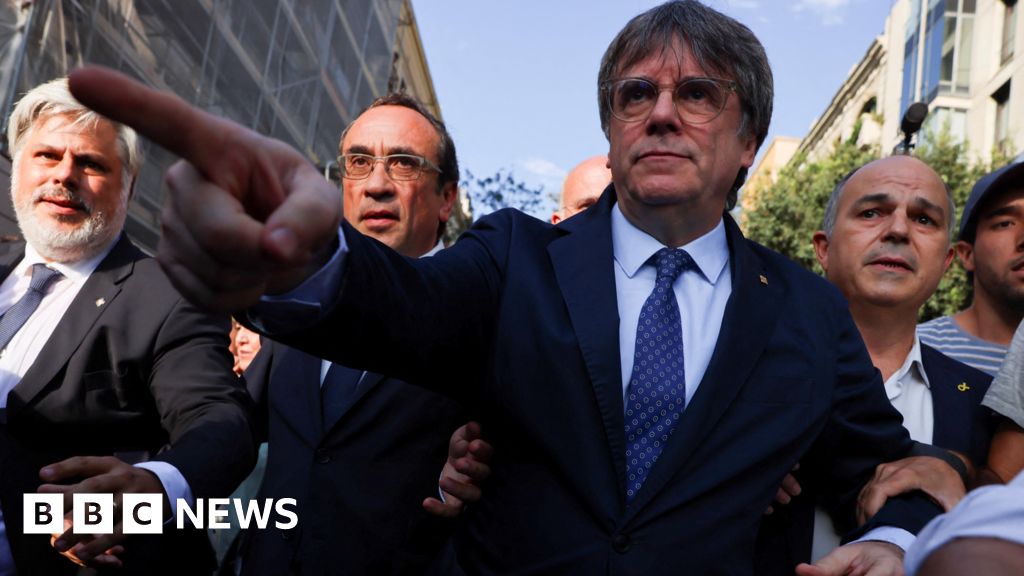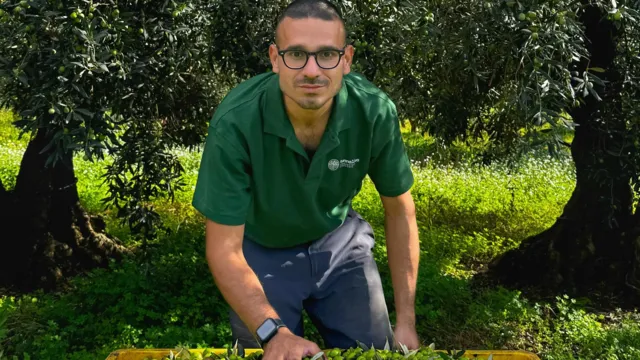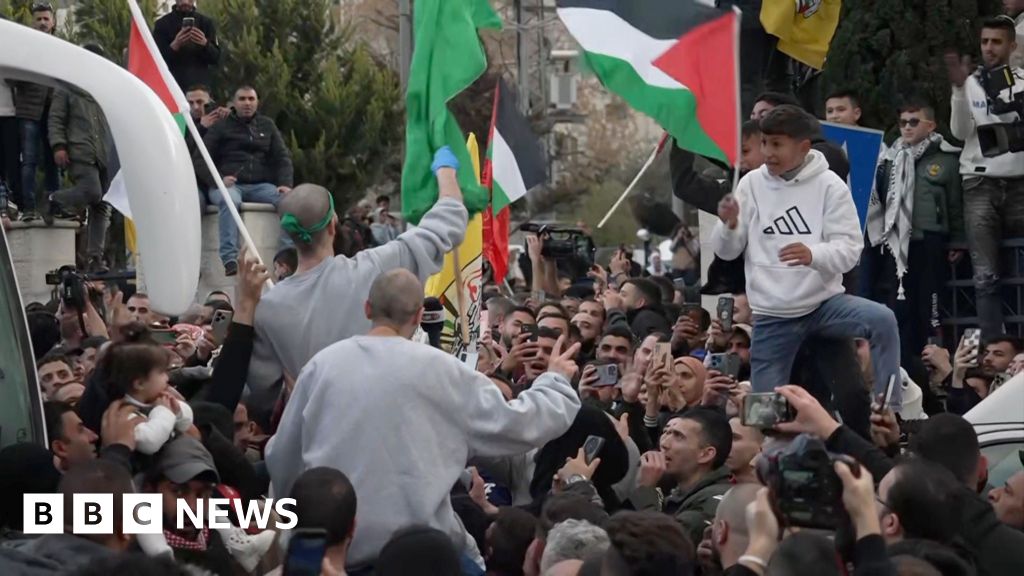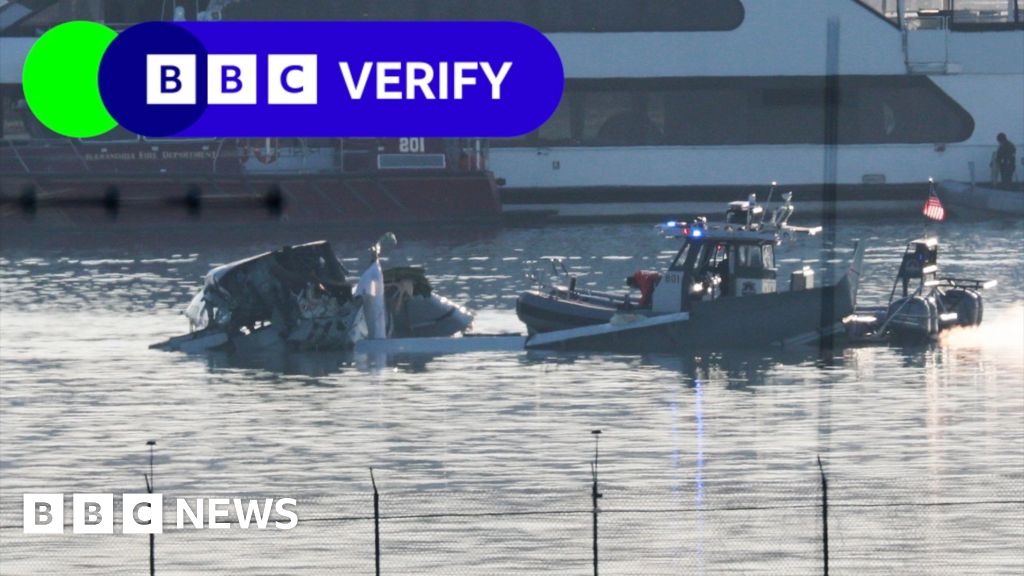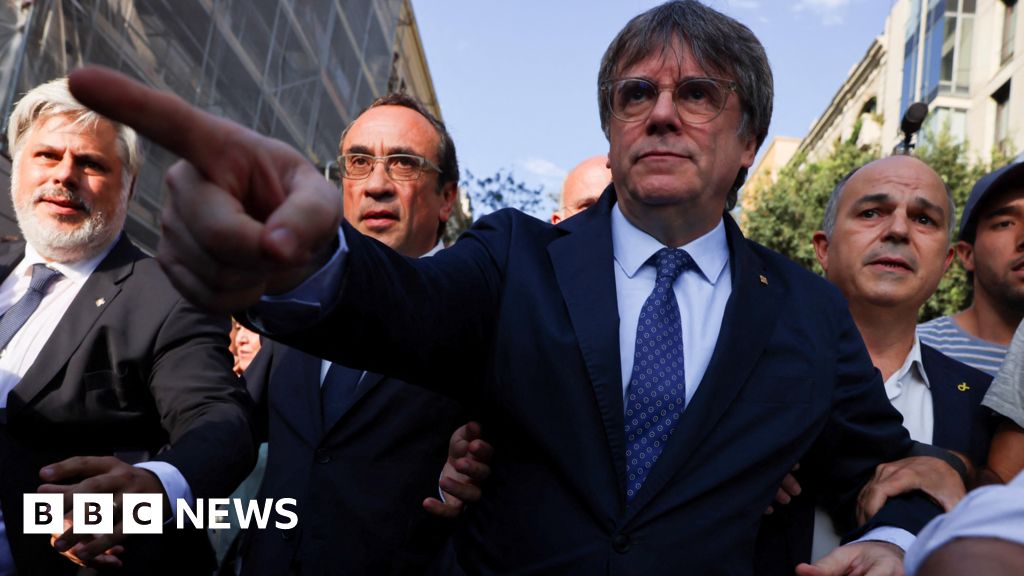
Police in Barcelona are hunting for the separatist former leader of Catalonia, Carles Puigdemont, who made a dramatic return to Spain after a seven-year exile despite facing an outstanding arrest warrant.
The Mossos d’Esquadra – Catalan police – set up roadblocks within Barcelona and leading out of the city as part of Operation Jaula – or “cage” – aimed at finding Mr Puigdemont, who was seen leaving a rally this morning in a car.
The operation was reportedly ended a few hours later, although Mr Puigdemont does not appear to have been located yet.
For much of the past several years he has lived in Brussels, after police indicted him on charges linked to a failed bid for Catalan independence in 2017.
At the time, Catalonia’s pro-independence leaders including Mr Puigdemont organised a referendum – which was ruled illegal by Spain’s constitutional court – and later declared independence for the region. Madrid imposed direct rule on the region shortly after and Mr Puigdemont fled to Belgium.
On Thursday morning, Mr Puigdemont briefly addressed hundreds of supporters who gathered near the Catalan parliament in Barcelona, shortly ahead of the expected investiture of a new head of the Catalan government.
He shouted “Long live a free Catalonia!” before saying he had returned “to remind you that we are still here”.
“Holding a referendum is not and will never be a crime,” he added.
Mr Puigdemont then disappeared.
Many were expecting him to turn up inside the parliament building in time for the investiture ceremony at 10:00 (08:00 GMT), but he was nowhere to be seen.
A Catalan police officer was detained on suspicion of helping Mr Puigdemont flee, a spokesperson for the Mossos d’Esquadra said.
The officer allegedly owns a car in which Mr Puigdemont escaped after making his address, Spanish media said.
Roadblocks were set up around Barcelona for a time on Thursday morning and Spanish TV also showed images from La Jonquera, a municipality bordering France, where police could be seen stopping cars and checking the boots.
Puigdemont ally Aleix Sarri criticised the police operation on X, saying: “Hundreds of policemen encircle Barcelona to arrest President Puigdemont. A hunt paid with public money to please the powers in Madrid. This is not what a democracy does.”
Police reportedly used pepper spray to disperse Puigdemont supporters who gathered near the parliament.
Ignacio Garriga of the far-right Vox party, which strongly opposes independence for Catalonia, said Vox would “do everything necessary to ensure that Puigdemont is arrested”.
Some Spanish commentators are puzzled at the fact that police were unable to arrest Mr Puigdemont despite him announcing he would return to Catalonia earlier this week.
On Wednesday, he posted a video on X saying that he had “started the return trip from exile” and added that his arrest would have been illegal and arbitrary.
There appear to be several motives behind Carles Puigdemont’s return to Spain.
Firstly, he wants to pressure the authorities into applying the country’s new amnesty law – which withdraws legal action against Catalan nationalists – to him, after the supreme court excluded him from its application on technical grounds.
He also aims to disrupt the investiture of Socialist Salvador Illa as the new Catalan president today.
The former Spanish health minister would become the region’s first non-nationalist leader since 2010.
Equally important for Mr Puigdemont is to assert himself and his Junts per Catalunya (JxCat) party as the main pro-independence force.
He is keen to cast his separatist rival, the Catalan Republican Left (ERC), as being complicit with Spanish unionism because of its agreement to support Mr Illa’s investiture.
Until a new local government is in place, ERC is still responsible for the Catalan police force, making the former regional president’s return particularly uncomfortable for the party.
